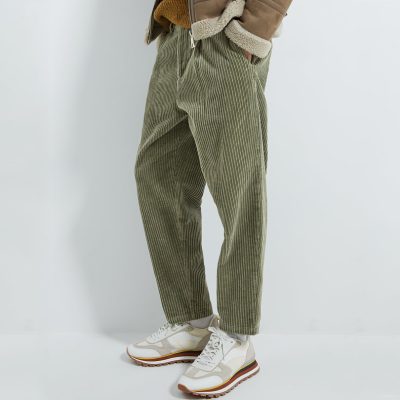“Denim Delight: Exploring the World of Jeans”
Jeans are a staple in the wardrobes of people around the world. These versatile and durable pants have a rich history and have become an iconic piece of clothing. In this exploration of the world of jeans, we’ll dive into their origins, evolution, styles, and cultural significance.
1. Origins of Denim:
- Jeans originated in the 19th century in the United States. The term “jeans” is believed to have come from the French word “bleu de Gênes,” referring to the blue fabric from Genoa, Italy, where a similar twill fabric was produced.
- Levi Strauss and Jacob Davis are credited with creating the first modern jeans in 1873 when they patented riveted pants made of denim for durability, initially targeting miners and laborers during the California Gold Rush.
2. Evolution of Styles:
- Over the years, jeans have evolved into a wide range of styles, including bootcut, straight-leg, skinny, boyfriend, and flared.
- Distressed jeans, ripped jeans, and acid-washed jeans have all had their moments of popularity, reflecting changing fashion trends.
- High-rise and low-rise jeans have also made waves in fashion, emphasizing different waist heights.
3. Denim Fabric:
- Denim is typically made from 100% cotton, although variations with added stretch materials like elastane or spandex are common for comfort and flexibility.
- Raw or “selvedge” denim, known for its stiff, unwashed, and durable qualities, is favored by denim purists.
4. Cultural Significance:
- Jeans have transcended their utilitarian origins to become symbols of rebellion, youth culture, and casual fashion.
- Denim jeans were popularized by Hollywood icons like James Dean in “Rebel Without a Cause” and Marilyn Monroe in “The Misfits,” contributing to their iconic status.
- Jeans became associated with counterculture movements in the 1960s and ’70s and continue to be a symbol of individualism and non-conformity.
5. Global Appeal:
- Jeans have universal appeal, worn by people of all ages, genders, and backgrounds worldwide.
- Cultural adaptations have led to variations like “mom jeans,” “dad jeans,” and “skinny jeans,” each with its own unique style and connotations.
6. Sustainable and Ethical Concerns:
- The denim industry has faced criticism for its environmental impact, particularly related to water usage and chemical treatments. Sustainable denim brands and practices are gaining prominence.
- Ethical concerns surrounding labor conditions in denim production have also led to greater scrutiny and demands for transparency in the industry.
7. Denim Icons and Brands:
- Iconic denim brands like Levi’s, Wrangler, and Lee have a rich history and continue to be influential in the fashion world.
- High-end designer jeans have gained popularity, with brands like Diesel, Calvin Klein, and True Religion offering premium denim options.
8. Future of Denim:
- The future of jeans may involve further sustainability efforts, such as recycling denim, reducing water usage, and using alternative materials.
- Customization and personalization through technology like 3D printing and body scanning may become more common in denim production.
Jeans are more than just pants; they are a cultural phenomenon with a rich history and a bright future. As they continue to adapt to changing tastes and values, denim remains an enduring and beloved part of fashion and self-expression worldwide.























